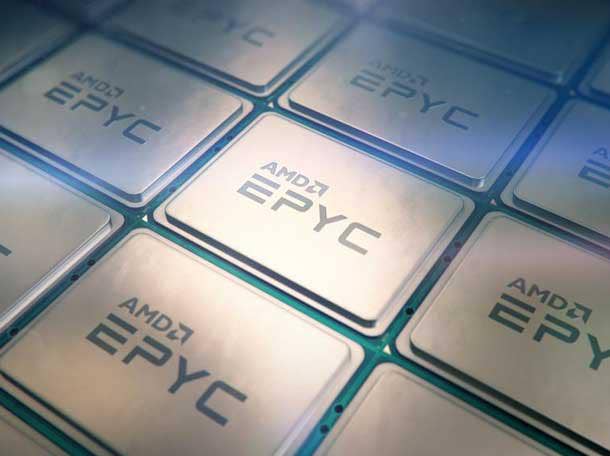AMD Exec: TSMC Has Capacity To Meet EPYC Rome Demand
'We want to reassure people we are very well positioned,' AMD executive Scott Aylor says of the chipmaker's ability to meet demand for its second-generation EPYC Rome processors through TSMC's production capacity.

AMD executive Scott Aylor said the chipmaker is "very well positioned" to meet demand for its second-generation EPYC Rome processors through the production capacity of semiconductor foundry TSMC.
Aylor, corporate vice president and general manager of data center of AMD's Datacenter Solutions Group, made the comments in a Tuesday briefing about the chipmaker's progress with EPYC Rome in response to concerns that its CPU supply won't be able to keep up with demand.
[Related: New Dell EMC Servers With AMD EPYC Rome Target Emerging Workloads]
"We will be able to meet the needs of a fantastic level of interest," he said. "[TSMC has] full commitment to ramp the volumes needed on the market."
Aylor said his comments, which were made during a presentation for journalists, were not in response to a Tuesday story by Digitimes stating that TSMC, or Taiwan Semiconductor Manufacturing Company, has pushed back the lead time for products made using the foundry's 7-nanometer node — which includes EPYC Rome — has been pushed back from two months to nearly six months.
TSMC declined to comment on the Digitimes article, saying it doesn't comment on rumors or disclose the lead time for individual nodes.
AMD is set to share the stage with TSMC on Wednesday for a European launch event for the new EPYC processors in Rome, Italy, where the two companies are expected to talk about a "multi-generational partnership" and how TSMC's 7nm process is a "very mature and high-volume node," according to Aylor.
"We want to reassure people we are very well positioned," he said.
Aylor said that while "lead times for 7nm are long," AMD has done a lot of planning, including with OEMs and cloud service providers, "for many, many months" to ensure that the company's supply of processors can meet demand for partners and customers.
"As you can imagine, this is an area where these platforms don't come up overnight," he said.
Unlike Intel, AMD is a fabless company, meaning the chipmaker doesn't own a foundry to manufacture its processors. Instead, the Santa Clara, Calif.-based company contracts with external foundries like TSMC and Globalfoundries, the latter of which spun out of AMD in 2008.
In an interview with CRN last year, AMD CTO Mark Papermaster said being fabless is a major advantage in how the company brings its processors to market.
"Before I got here, AMD had made a decision to go fabless, because the value we bring, of getting great, high-performance products to market, we need to be able to move very nimbly from a design standpoint," Papermaster said at the time.
Kent Tibbils, vice president of marketing at ASI, a Fremont, Calif.-based distributor that sells AMD products as a channel partner, said he's sure AMD's customers are asking about supply, especially because of how other companies rely on TSMC for other 7nm products. Because data center projects have longer lead times, he added, it's important that customers and partners have a good pulse on whether they can procure processors in a timely manner.
"You can't just easily switch back and forth, so there needs to be some consistency and comfort level that supply can be met," he said.
Tibbils said after some initial delays, ASI hasn't had any issues with EPYC Rome supplies.
"I haven’t seen anything from our product managers saying there are SKUs that were having delays," he said.
At AMD's launch event in Rome, the company is also expected to announce new partnerships with IBM Cloud for solutions around cloud security, big data and container workloads; and OVHcloud for a new high-end hosting instance. In addition, the chipmaker is revealing a new SKU, the EPYC 7H12: a 180-watt and high-performing 64-core processor that requires liquid cooling.
Aylor said AMD's EPYC Rome processors can now claim more than 100 world records for high-performance computing, floating point performance, rendering, integer performance, Java-based performance, energy efficiency, big data and virtualization, among other things.
"As you can see, we have a tremendous amount of momentum," he said.